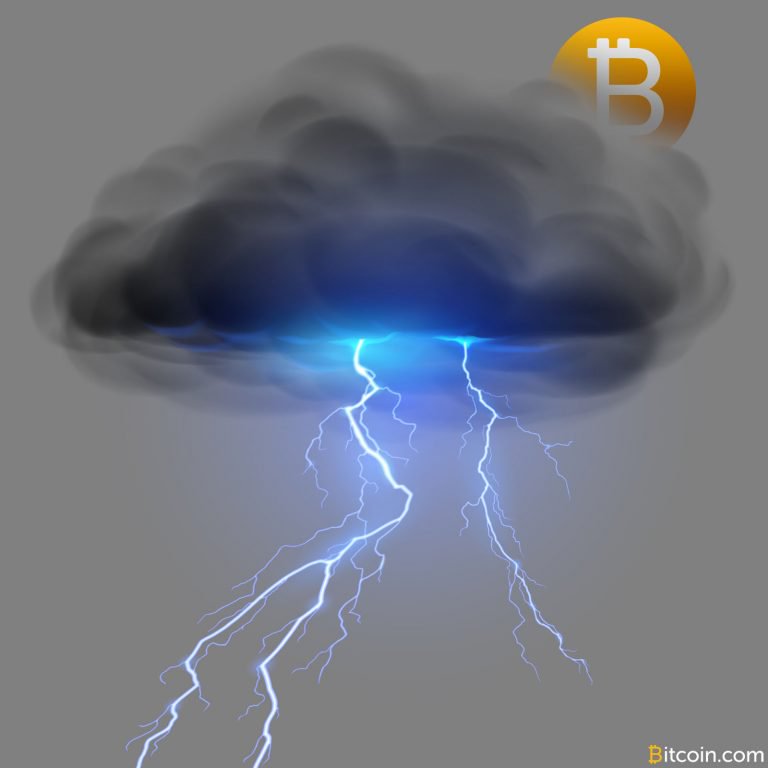Lightning Network Centralization Leads to Economic Censorship
source: Bitcoin News
2017. Oct. 09. 15:30

Written by Jonald Fyookball.
A few months ago, I wrote an article called “Mathematical Proof That the Lightning Network Cannot Be a Decentralized Bitcoin Scaling Solution”. It received quite a bit of attention, both positive and negative.
Now it seems that the realities of LN’s limitations are being accepted, and new narratives are forming to justify the continued morphing of Bitcoin into a settlement layer.
For example, here is a Reddit conversation that took place a few days ago. Our adversarial friend u/benjamindees seems to acknowledge that the Lightning Network will rely on large centralized hubs, but argues that this is no worse than large Bitcoin nodes:
Large Bitcoin Nodes vs. Large Lightning Hubs
To play devil’s advocate with myself for a moment, the argument goes like this: “Large, expensive Bitcoin nodes are just as bad as large LN payment hubs. A large miner could decide to not include your transaction in block just as a payment channel could decide not to route your payment.”
To that, I would say…
A large miner (or even a majority cartel of miners) cannot effectively censor your transactions, because ANY miner can include your transaction in a block.
But the same is not true for LN hubs. They can effectively censor your transactions, because NOT any hub can route your payment. (If you have a set of coins in one specific channel, it has to be routed using that channel)
Side note: we’re not talking about 51% mining monopoly attacks here.Just to clarify (because I know someone will take this out of context), I’m ignoring the situation where a mining cartel refuses to let others mine blocks with unwinding (re-org) attacks.
We can safely ignore this edge case because it would either kill Bitcoin as we know it anyway, or it would be met with a user activated fork.
In other words: as long as re-org attacks aren’t constantly happening, some miner will eventually include your transaction in a block and no one can stop that.
Why Can’t You Just Use a Censorship-Free Hub?
Continuing with the devil’s advocate argument, you might say “It doesn’t matter if a Lightning hub won’t play nice. You just refuse to use that hub, or if you’re already there, withdraw your money and use a different hub.”
But remember, LN is not permissionless.
The problem isn’t necessarily you finding a censorship-free hub, but rather being able to route your payment to others who haven’t.
Example: Megabank “A”, “B”, and “C” all decide to become Lightning Hubs. They all acquire customers and have channels open between the 3 banks. This allows customers from any of the banks to send money to other customers of those 3 banks.
You, being a freedom-loving individual, decide to open a channel with an anonymous hub known only as T35G7. Guess what. Megabanks A, B, and C don’t want to open a channel with T35G7. So you can’t send to any of their customers since there’s no available route.
I think it would only be a matter of time before the system either falls into complete censorship, or fractures. Even if you believe the probabilities of these outcomes are small, it should be considered a deal-breaker.
Bypassing Harmful AML/KYC Regulation
Bitcoin is about financial sovereignty.
You have a right to privacy.
You should be allowed to do whatever you want with your money as long as you’re not hurting someone else.
You shouldn’t be treated like a criminal. And you shouldn’t have to submit your personal information and have your transactions tracked by a bank, a government, or anybody else.
Bitcoin is inherently resistant to economic censorship. Governments cannot force miners to collect your AML/KYC information because users will choose to bypass it, and another miner will always be there to put your transaction into a block.
Miners Are Your Friends
Miners are the ones making Bitcoin possible by securing the network through a Proof-of-Work algorithm.
The idea that you can have a censorship-resistant network because of thousands of people running fully validating, non-mining nodes on Raspberry Pi’s doesn’t make any sense.
Only mining nodes can put your transaction into a block!
But systems like the Lightning Network are highly vulnerable to economic censorship. That’s one of the big reasons we reject the settlement layer model and prefer our Bitcoin to be Peer to Peer Electronic Cash.
Written by Jonald Fyookball
Jonald Fyookball (pseudonym) is a cryptocurrency enthusiast, best known as the project leader of the Electron Cash wallet, and for a series of hard hitting articles on the Bitcoin scaling debate. Jonald is a computer scientist, businessman, investor, libertarian, and Bitcoin advocate.
Do you think Lightning Network Centralization Leads to Economic Censorship? Share your thoughts in the comments section below!
This is an Op-ed article. The opinions expressed in this article are the author’s own. Bitcoin.com does not endorse nor support views, opinions or conclusions drawn in this post. Bitcoin.com is not responsible for or liable for any content, accuracy or quality within the Op-ed article. Readers should do their own due diligence before taking any actions related to the content. Bitcoin.com is not responsible, directly or indirectly, for any damage or loss caused or alleged to be caused by or in connection with the use of or reliance on any information in this Op-ed article.
Images courtesy of Shutterstock
At news.Bitcoin.com all comments containing links are automatically held up for moderation in the Disqus system. That means an editor has to take a look at the comment to approve it. This is due to the many, repetitive, spam and scam links people post under our articles. We do not censor any comment content based on politics or personal opinions. So, please be patient. Your comment will be published.
The post Lightning Network Centralization Leads to Economic Censorship appeared first on Bitcoin News.





